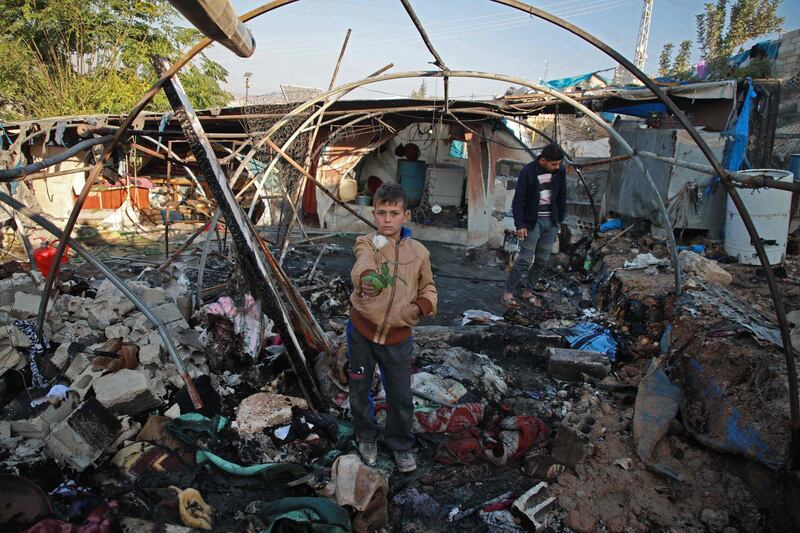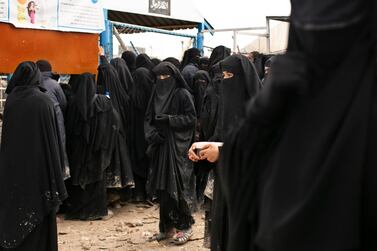Anger over a Syrian missile strike that killed at least 12 people in a camp for internally displaced persons prompted outspoken remarks from Britain's top diplomat at the United Nations on Friday.
The deaths at Qah, in Idlib province near the border with Turkey, punctuated a week in which President Bashar Al Assad and his ally Russia have intensified efforts to reclaim territory in northern Syria.
UN officials said that the missile was fired on Wednesday from government-controlled territory and it exploded near a maternity hospital. Beyond those killed, dozens were wounded.
The incident played into discussions at the UN Security Council ahead of a UN-backed constitutional committee's second round of consultations in Geneva on Monday.
Ambassador Karen Pierce, Britain's permanent representative to the UN, has frequently hit out at the Syrian government and Russia for conducting air strikes and shelling on civilian areas.
Ms Pierce's stance has made her a frequent target of counter allegations from the Assad regime and Russia, which has accused humanitarian groups such as The White Helmets of terrorism.
Ms Pierce said any suggestion that Britain or other European states were supporting militants on the ground was false.
Britain currently holds the council presidency.
“It's not the track record of the West that's lacking, it's the track record of the Syrian Arab Republic and its ally, the Russian Federation,” Ms Pierce said, again accusing Damascus and Moscow of hitting civilian sites such as schools and hospitals.
“Attacks on the West and attempts to portray us as harbouring terrorists or somehow (being) on the side of terrorists... this really does need to cease.
“It's a calumny and it's untrue, like so many of the other things that have been said about the situation in Syria from the two countries represented to my right.”
Her statement followed a briefing by Geir Pedersen, the UN Secretary General's special envoy for Syria, whose team is pushing for progress from the recently convened Syrian Constitutional Committee, considered a first step in peace efforts.
The 150-member panel comprises an equal number of government, opposition and civilian representatives whose job is to revise Syria's constitution or write a new one that will pave the way to elections. Fifteen members of each delegation will draft the document although there is no set deadline.
After almost nine years of war the Syrian government has been accused by its critics of agreeing to participate in the constitutional process for no reason other than to muddy the waters while it pursues its military effort to reclaim all sovereign territory.
Mr Pedersen praised all sides for their efforts during a first round of talks in Geneva last month, but he said the surge of violence in Idlib over the past two weeks was damaging.
“If confidence is to develop among the Syrian people in the political process the dynamics on the ground need to begin to change,” he said.
James Jeffrey, the US special representative for Syria, underlined the need for a ceasefire. He also called for countries to pressure the Assad regime.
“The United States maintains its position that there can be no reconstruction assistance to Damascus in the areas that it controls until there is a credible and irreversible political process in line with (Security Resolution) 2254,” he said.
“We believe that this position is consistent with many of our European and Middle Eastern partners. We will work closely with them to ensure that this pressure is maintained.”






